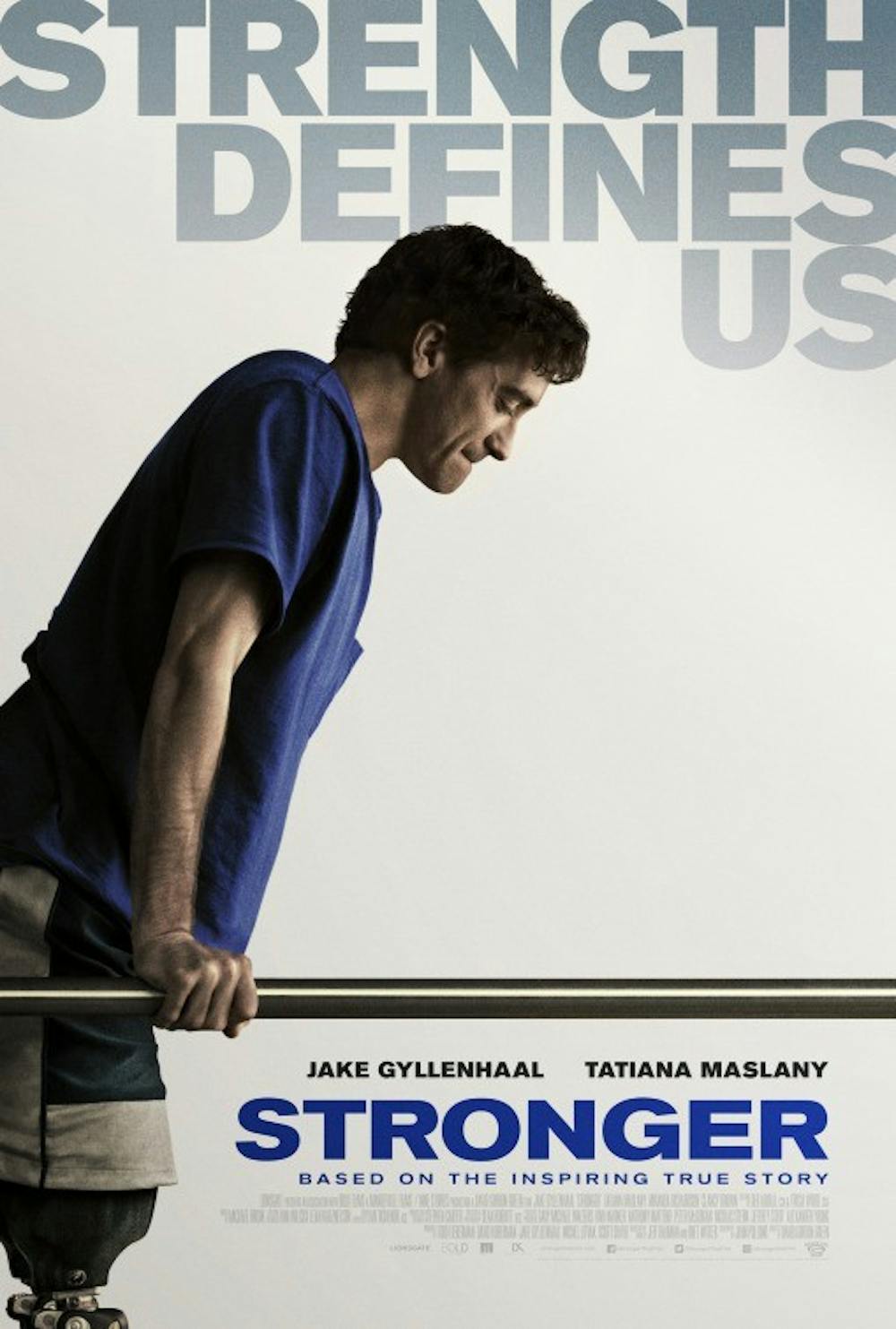Most of us have experienced the emptiness of acknowledging a loss: the epiphany that comes with stepping back into the bleak reality after a period of taking shelter in denial. It's painful, ugly, dismaying, and it's futile to explain. But there's a scene in Stronger that manages to capture the very essence of this feeling in the rawest, purest form possible: by allowing us to see, well, close to nothing. It is not the sight of Boston Marathon bombing survivor Jeff Bauman’s (portrayed by Jake Gyllenhaal) wounds that’s striking—in fact, we only know they’re there because of the blurry figure of doctors. But the acute sound of his shrieks as the bandages come off, the tremor of his voice as he seeks comfort in his girlfriend’s embrace, and the tears after looking down at his two stumps reveal a wound that transcends the physical: the agonizing realization that his legs, once taken for granted, are now gone.
One of the pivotal features of cinema is its ability to capture the small details of everyday life. This is perhaps what Stronger does best—it goes beyond the story that moved an entire nation and focuses on the less–inspiring “making of,” without shying away the absurdity of life in the aftermath of a trauma. The beginning of the movie familiarizes us with the extremely Bostonian, almost archetypal character of Jeff Bauman: charismatic, but not particularly reliable, he's a Costco employee in his twenties who occasionally leaves his job early so as not to miss his “lucky seat” at the bar showing the Red Sox game. The bar is the perfect backdrop for a prologue: we are introduced to Jeff’s borderline alcoholic mother Patty—masterfully portrayed by actress Miranda Richardson, whose native British accent vanishes into thin air along with any intention to pronounce the letter “R.” Also at the bar is Jeff’s on–and–off girlfriend Erin (played by Orphan Black actress Tatiana Maslany), who takes a break from training for the upcoming Boston Marathon in order to collect donations for a hospital. Jeff takes his shot at chivalry by helping her out, but Erin is not impressed; it would take a lot more than a pseudo–heroic gesture to erase the memory of his past mistakes.
In fact, the cost of getting her back is a lot higher than anticipated. The next day, we find Jeff excitingly holding a sign close to the finish line at the Marathon, waiting for Erin to acknowledge his support. Before she has a chance to do so, two bombs go off and chaos ensues. The rest is history: Jeff Bauman wakes up in the hospital missing both of his legs, and has to learn how to live with the loss. This is where it becomes obvious that director David Gordon Green takes a humane approach to a story that has so far been presented to the public as yet another piece of news. There’s barely any mention of the state–wide manhunt for the perpetrators. There are no obviously tear–jerking shots or lines. In fact, the script—a notable debut by actor–gone–screenwriter John Pollono—provides some much–needed comedic relief throughout the film, whether it’s Jeff’s mom's comically grotesque discourse or Erin’s witty comebacks.
But it would be wrong to call Stronger an emotional roller coaster. It is not flashy or melodramatic, and it is definitely not a bumpy ride. Instead, it pirouettes graciously across a stage built on human emotions, covering everything from the pits of despair to the heights of exhilaration and everything in between. None of this would have been possible without Jake Gyllenhaal, whose Oscar–worthy acting skills shine through in several simple, yet powerful scenes. This is where Stronger moves away from the kitschy, formulaic biopic. It manages to be harrowing without exaggerating—or, on the contrary, belittling—the inescapable routine of an amputee. Jeff is confused: he constantly wonders what earned him the title of a hero, a role he is anything but prepared for. He almost has a panic attack at a hockey game, when the flashing lights and the crowd’s “Boston strong!” chants almost resemble attacks. Jeff doesn’t see himself as a hero. In a lot of aspects, he's not. He is just another human being learning to survive loss—what stuck with me was his meaningful silence as he clears out his socks drawer. It is perhaps this scene that best describes the entire movie: simplicity is the most effective means to portray emptiness. He drinks to alleviate his pain, all the while learning to cope with a fame–obsessed family and an expecting girlfriend. And, in the end, it’s this simple act that makes him worthy of his hero–title: he is adamant to resist all forms of oppression, and slowly, but surely, becomes a hero for his mother, his girlfriend, the world, and ultimately himself.
Stronger premieres in theaters across the US on September 22nd. Read Street's interview with the movie's producer, Todd Lieberman.

